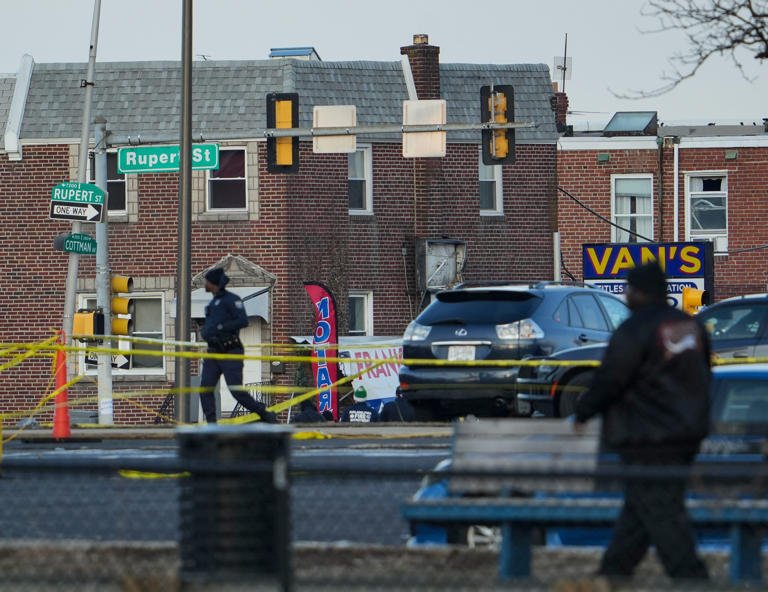
Gaza Ceasefire Brings Hope and Heartbreak: ‘Staying Alive Was Luck
Gaza Ceasefire Brings Hope and Heartbreak: ‘Staying Alive Was Luck
Deir el-Balah, Gaza and Beirut, Lebanon – In the Gaza Strip, numerous Palestinians are rejoicing, with hopes that a brutal 15-month conflict has finally come to an end.
According to Qatar and the United States, Israel and Hamas have reached an agreement on a ceasefire proposal, which would include a swap of captives and prisoners, along with the return of Palestinians to their residences throughout Gaza. While Israel claims that a few matters remain unresolved, Hamas has declared its agreement to the deal. In Gaza, the elation among Palestinians is overshadowed by sorrow, having endured the loss of many loved ones in an Israeli campaign that human rights organizations and United Nations experts have labelled as “genocide.”
Multiple Palestinians shared with Al Jazeera their intentions to go back to their towns and villages as soon as they get the chance, having been uprooted by Israeli strikes and so-called “evacuation orders.” “The moment there is a ceasefire, I will return and embrace my land in Beit Hanoon in northern Gaza,“ expressed Umm Mohamed, a 66-year-old woman who lost two of her ten children when an Israeli bomb struck her home in December 2023. “What I have come to understand during this war is that your home, homeland, and children are everything you truly possess,“ she told Al Jazeera.
Exclusive: Trump Officials Push for Resignation of Key US Diplomats
Biden to Leave Unfinished Middle East Agenda for Trump Amid Growing Chaos
Arrested South Korean President Yoon Faces Investigation in Insurrection Case
The conflict waged by Israel in Gaza has resulted in the deaths of over 46,500 Palestinians and left more than 100,000 injured. This escalation began following a Hamas-led assault on southern Israel on October 7, 2023, which led to the deaths of 1,139 individuals and saw around 250 taken hostage. Throughout Israel’s military operations in Gaza, it systematically targeted schools, hospitals, and refugee camps, leading to the destruction of almost all essential services and infrastructures that support life, as reported by UN specialists and human rights organizations. In September 2024, the United Nations Satellite Center revealed that 66 per cent of all buildings in the Gaza Strip had been damaged or destroyed as a result of Israeli bombardments.
Israel has intensified its already strict blockade on Gaza since the onset of the conflict, leading to widespread hunger and a collapse in public order. As the prospect of relief seems to be within reach, Palestinians are finding it difficult to cope with the losses they endured during the war. “I have mixed emotions… but I hope and pray to God that we can go back to our normal lives without feeling vulnerable,“ expressed Mohamed Abu Rai, a 47-year-old medical professional, from his office in Deir el-Balah.
Memory and grief
Palestinians reflected on the loved ones they lost due to Israeli assaults before the now-anticipated ceasefire. Lubna Rayyes, who served as the principal of the International American elementary school in Gaza City, shared that she lost a colleague, Bilal Abu Saaman, while he was rescuing individuals from the debris when he was bombed. Rayyes mentioned that she often contacts Abu Saaman’s widow to inquire about his young children. “He was an exceptional and very kind teacher. His death profoundly impacted me, and it still causes pain to this day,“ Rayyes told Al Jazeera over the phone from Cairo, Egypt, where she has been residing with her husband and three children since last year. “Bilal was truly one of the best individuals in the world,“ she continued. Rayyes also recounted how her family home was reduced to ashes by Israeli soldiers who set it ablaze. “There is nothing left of the house,“ she sighed. “We couldn’t retrieve any family photos or any memories. It’s all disappeared.“ Abu Rai also experienced the loss of his home, but like Rayyes, he indicated that the memories of lost colleagues and friends bring him the most profound sorrow. He believes that the actual number of casualties is significantly higher than the official count, and he remains bewildered about how he managed to survive over the last 15 months. “Surviving in Gaza has always been a matter of chance,“ he remarked.
Trump Chooses Paul Atkins to Oversee Securities and Exchange Commission
Iraq PM to Sign Security Agreement with Britain
Southern California Edison Hit with Lawsuits Over Los Angeles Wildfires
Stay or go?
Many Palestinians are eager to return to their homes and restore their communities, while others can no longer envision staying in the besieged territory. Mahmoud Saada, 52, expressed his doubts about a lasting resolution to the Israeli-Palestinian conflict, even with the expected ceasefire. He stated that he plans to take his young children and leave Gaza as soon as the border to Egypt opens. “I swear to God I won’t go back to Gaza. I am so exhausted and frustrated,“ he remarked from Deir el-Balah, where he shares a cramped tent with his family. “I want to escape Gaza and go anywhere else,“ he told Al Jazeera. Abu Rai also mentioned that he finds it unimaginable to remain in Gaza now that everything has been utterly devastated. He believes that most survivors are profoundly traumatized and cannot visualize the process of rebuilding their communities and lives once more, particularly as Gaza has already faced the challenge of recovering from multiple past conflicts with Israel. Currently, he suspects many individuals are seeking a way out, at least for the time being. “There has been immense destruction, and we are starting from scratch again. Constantly reconstructing our communities takes so much time from our lives. Every day we lose is a day we cannot reclaim,“ he shared with Al Jazeera.
Abu Rai, Rayyes, and Umm Mohamed all concur that Palestinians will feel a sense of loss for Gaza if they depart, making it a difficult decision for many. Ultimately, they think most individuals will remain or return to Gaza. “We have to return eventually, you know?“ Rayyes expressed to Al Jazeera. “There truly is no place like home.”
Source: Aljazeera






